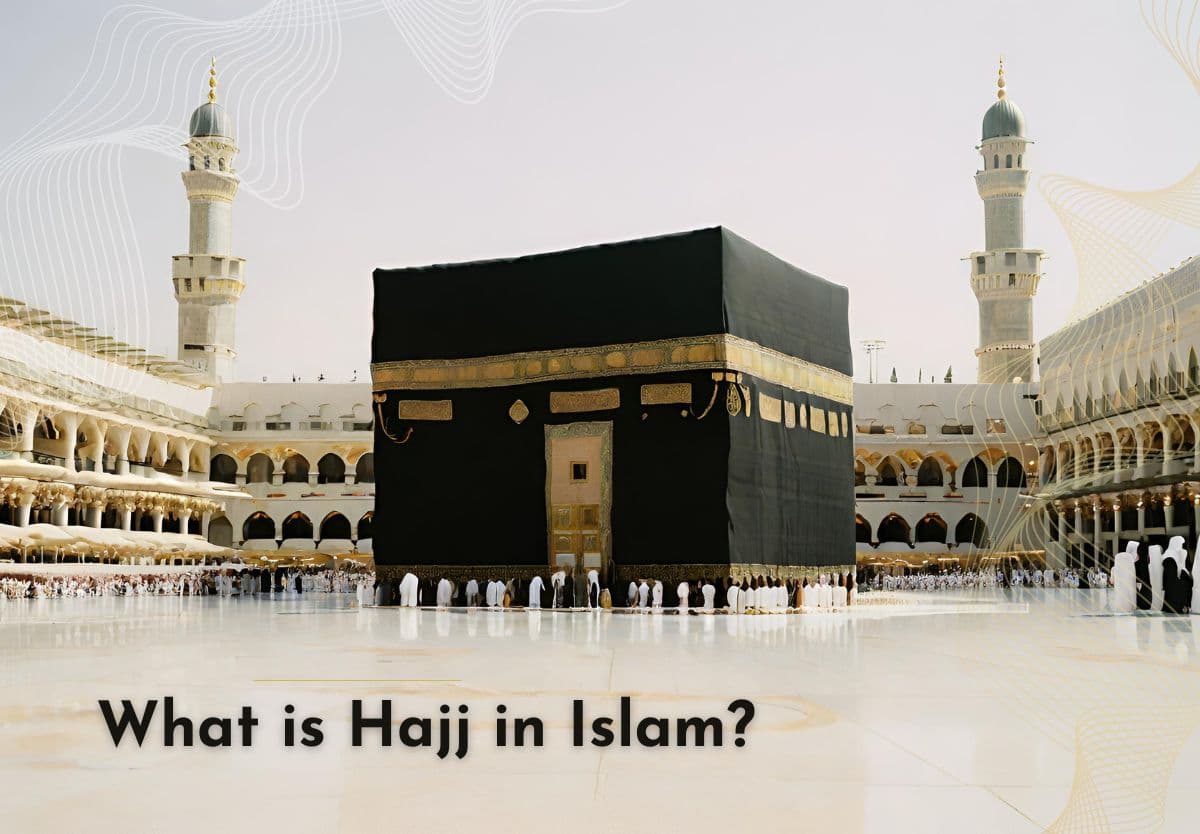Welcome to our blog post where we unravel the significance of Hajj in Islam. For Muslims around the world, Hajj is a sacred pilgrimage to Mecca that holds great importance in their faith. In this blog post, we will dive into the definition of Hajj, its importance in the lives of Muslims, and provide an overview of the blog post structure that will guide you through this enlightening journey. So, let’s explore the essence of Hajj together!
History of Hajj in Islam
Origins of Hajj in Islamic history
Historically, the Hajj pilgrimage dates back to the time of Prophet Ibrahim (AS) (Abraham) and his son Isma’il (Ishmael). According to Islamic tradition, Ibrahim (AS) was instructed by Allah to build the Kaaba, the sacred house of worship in Mecca, and to call people to pilgrimage to this holy site.
Evolution of Hajj rituals over time
Over the centuries, the rituals of Hajj have evolved and been refined. What started as a simple pilgrimage to the Kaaba has developed into a complex series of rituals including the Tawaf (circumambulation of the Kaaba), say (running between the hills of Safa and Marwah), and the stoning of the devil at Mina.
Connection of Hajj to the Prophet Muhammad
The Prophet Muhammad (PBUH) also played a significant role in the history of Hajj. He performed the pilgrimage himself and established the rituals and practices that are followed by Muslims to this day. The Hajj pilgrimage is considered one of the Five Pillars of Islam, highlighting its importance in the faith.
Importance of Hajj in Islamic Faith
Hajj as one of the Five Pillars of Islam
One of the most crucial aspects of the Islamic faith, Hajj is considered one of the Five Pillars of Islam. It is mandatory for every Muslim who is physically and financially able to perform the pilgrimage at least once in their lifetime.
Spiritual significance of performing Hajj
Performing Hajj is a deeply spiritual journey for Muslims. It is a time for self-reflection, repentance, and seeking forgiveness from Allah. The rituals performed during Hajj are believed to cleanse the soul and bring the pilgrim closer to Allah.
Unity and equality among Muslims during Hajj pilgrimage
During Hajj, Muslims from all walks of life come together in a spirit of unity and brotherhood. Regardless of nationality, race, or social status, all pilgrims wear simple white garments and perform the same rituals. This emphasis on equality reinforces the idea of the Ummah, or the global Muslim community.
Rituals and procedures of Hajj
Embarking on the Hajj journey is a profound experience for every Muslim. It is a pilgrimage filled with rituals and procedures that hold immense significance in Islamic faith.
Journey to the holy city of Mecca
The first step of Hajj is to journey to the holy city of Mecca, the birthplace of Prophet Muhammad. Muslims from all over the world gather here to perform the sacred pilgrimage.
Tawaf (circumambulation) around the Kaaba
Upon reaching Mecca, pilgrims perform Tawaf, which involves circling the Kaaba seven times in a counterclockwise direction. This ritual symbolizes the unity of Muslims worldwide.
Stoning of the Devil at Mina
One of the key rituals of Hajj is the Stoning of the Devil at Mina. Pilgrims throw pebbles at three pillars, representing Satan’s temptation of Prophet Ibrahim, as a demonstration of their rejection of evil.
Eid al-Adha celebrations and sacrifice
The culmination of Hajj is marked by the celebration of Eid al-Adha, also known as the Festival of Sacrifice. Pilgrims sacrifice an animal as a symbol of Prophet Ibrahim’s willingness to sacrifice his son in obedience to God.
Each of these rituals and procedures of Hajj hold a deep spiritual significance and serve as a reminder of the principles of sacrifice, unity, and devotion in Islam.
Contact with the Best Hajj Travel Agency Bangladesh
Significance of Kaaba in Hajj
Historical and religious significance of the Kaaba
The Kaaba, located in the sacred city of Mecca, holds immense historical and religious significance in Islam. It is believed to have been built by the Prophet Ibrahim and his son Isma’il as a house of worship for the one true God, Allah. Muslims from around the world turn towards the Kaaba during their daily prayers, symbolizing unity and devotion to their faith.
Symbolism of the Kaaba in the Hajj pilgrimage
During the Hajj pilgrimage, Muslims perform the Tawaf, which is the act of circling the Kaaba seven times in a counter-clockwise direction. This ritual symbolizes the idea of unity and equality among all Muslims, regardless of their nationality or social status. It serves as a reminder of the importance of devotion and submission to Allah.
Connection of the Kaaba to the Islamic faith
The Kaaba is considered the most sacred site in Islam and serves as the focal point for the Hajj pilgrimage. Muslims believe that the Kaaba is the literal house of God on earth, and it represents the unity of the Muslim ummah (community). The act of performing Hajj at the Kaaba reinforces the spiritual connection between the individual pilgrim and their faith.
Hajj in the Quran and Hadith
References to Hajj in the Quran
The significance of Hajj in Islam is emphasized in the Quran, the holy book of Muslims. In Surah Al-Imran, verse 97, Allah mentions the obligation of Hajj for those who are able to perform it: “and pilgrimage to the House is a duty owed to Allah by all people who are able to undertake it.”
In Surah Al-Baqarah, verse 196, Allah instructs the believers to perform Hajj: “And complete the Hajj and Umrah for Allah. But if you are prevented, then [offer] what can be obtained with ease of sacrificial animals. And do not shave your heads until the sacrificial animal has reached its place of slaughter.”
- Surah Al-Imran, verse 97: Emphasizes the obligation of Hajj for those who are able to perform it.
- Surah Al-Baqarah, verse 196: Instructs believers to perform Hajj and Umrah for Allah.
Hadiths related to the importance of performing Hajj
The importance of performing Hajj is also highlighted in the teachings of Prophet Muhammad (peace be upon him) in the Hadiths. One such Hadith narrated by Abu Huraira states: “Islam is built on five pillars: declaring that there is no god except Allah and that Muhammad is His messenger, establishing prayer, paying Zakah, fasting Ramadan, and performing Hajj.”
Another Hadith narrated by Ibn Umar mentions the rewards of performing Hajj sincerely: “Whoever performs Hajj for the sake of Allah and does not indulge in sexual relations or disputes, will return as free from sin as the day his mother gave birth to him.”
- Hadith narrated by Abu Huraira: Islam is built on five pillars, including performing Hajj.
- Hadith narrated by Ibn Umar: Rewards of performing Hajj sincerely without indulging in sinful activities.
These references in the Quran and Hadiths serve as reminders of the importance of Hajj in Islam and the virtues associated with performing this sacred pilgrimage.
Differences between Hajj and Umrah
When it comes to Islamic pilgrimages, Hajj and Umrah are two significant rituals that hold great importance in the lives of Muslims. Although both involve a journey to the holy city of Mecca, there are several differences between the two.
Contrasts in rituals and procedures of Hajj and Umrah
- Hajj: The pilgrimage of Hajj is one of the Five Pillars of Islam and is obligatory for all able-bodied Muslims to perform at least once in their lifetime. It consists of a series of rituals such as Tawaf, Sa’i, and standing in Arafat.
- Umrah: Umrah, on the other hand, is a non-mandatory pilgrimage that can be performed at any time of the year. It includes rituals similar to Hajj but on a smaller scale, without the requirement of standing in Arafat or sacrificing an animal.
Frequency and significance of performing Hajj vs. Umrah
While Hajj is a once-in-a-lifetime obligation for Muslims who can afford it, Umrah can be performed multiple times throughout the year. Hajj holds a higher religious significance and is considered a major pilgrimage in Islam, while Umrah is seen as a lesser pilgrimage but still carries spiritual benefits.
Similarities and distinctions between the two Islamic pilgrimages
- Both Hajj and Umrah involve a visit to the Kaaba, performing Tawaf (circumambulation), and Sa’i (walking between Safa and Marwa).
- The intentions and spiritual devotion required for both pilgrimages are similar, but the scale and obligation differ.
- Both Hajj and Umrah offer the opportunity for Muslims to seek forgiveness, purify their souls, and strengthen their faith.
In conclusion, while both Hajj and Umrah are important acts of worship in Islam, they have distinct differences in terms of rituals, significance, and frequency of performance. Regardless of the pilgrimage chosen, the ultimate goal remains the same – to draw closer to Allah and seek spiritual purification.
Impacts of Hajj on the individual and community
Personal growth and spiritual development through Hajj
Performing the Hajj pilgrimage is a transformative experience for individuals, as it allows them to deepen their faith, seek forgiveness, and purify their souls. The rituals and spiritual practices involved in Hajj help pilgrims reflect on their lives, reconnect with their Creator, and reevaluate their priorities. This spiritual journey often leads to personal growth and a renewed sense of purpose.
Strengthening bonds within the Muslim community
Hajj brings together millions of Muslims from diverse backgrounds, cultures, and countries, creating a sense of unity and brotherhood among the Ummah. By performing the pilgrimage together, pilgrims forge strong bonds with one another, transcending barriers of language, nationality, and social status. These connections built during Hajj often last a lifetime and contribute to the solidarity of the Muslim community.
Contribution of Hajj to global Islamic unity
Hajj serves as a powerful symbol of Islamic unity, as it brings Muslims from all corners of the world to the sacred city of Mecca to worship together. The collective experience of Hajj reinforces the idea of the Ummah as a global community bound by a common faith and shared beliefs. This sense of unity and solidarity among Muslims is strengthened through the pilgrimage, fostering a sense of belonging and interconnectedness.
Hajj in Contemporary Times and Challenges Faced by Pilgrims
Technological Advancements in Organizing Hajj
With the advent of technology, organizing Hajj has become more efficient and streamlined. Mobile apps and online platforms now allow pilgrims to register for the pilgrimage, receive important updates and information, and even track their group during the journey. This has simplified the process for pilgrims and organizers alike, enhancing the overall experience of Hajj.
Safety and Logistical Challenges for Modern Pilgrims
Despite technological advancements, safety and logistical challenges still remain a concern for modern pilgrims. The sheer number of people participating in Hajj each year poses a challenge in terms of crowd management, sanitation, and healthcare. Ensuring the well-being of all pilgrims and maintaining order during the various rituals of Hajj is a continuous challenge that organizers strive to address.
Resilience of the Hajj Tradition in the Face of Modern Challenges
Despite the challenges faced by modern pilgrims, the tradition of Hajj has remained resilient. Pilgrims from all walks of life continue to embark on this spiritual journey, united in their devotion to Allah. The sense of community and solidarity experienced during Hajj transcends the logistical and safety challenges, reaffirming the significance of this sacred pilgrimage in the lives of Muslims around the world.
Conclusion
After exploring the history, importance, rituals, and significance of Hajj in Islam, it is clear that this pilgrimage holds a special place in the hearts of Muslims worldwide. The journey to the holy city of Mecca, the rituals performed, and the spiritual fulfillment gained from completing Hajj are all essential components of this sacred pilgrimage.
As we reflect on the teachings of the Quran and the Hadith, we understand the true meaning and purpose of Hajj in Islam. It serves as a reminder of our faith, our devotion to Allah, and our connection to fellow believers from around the world.
For those who have had the opportunity to perform Hajj, it is a life-changing experience that brings them closer to their faith and strengthens their relationship with Allah. The impacts of Hajj on individuals and communities are profound, leading to spiritual growth, unity, and a sense of belonging.
As we navigate through contemporary times and face challenges such as the COVID-19 pandemic, it is important to remember the essence of Hajj and its significance in the Muslim faith. Despite obstacles and difficulties, the spirit of Hajj continues to inspire and uplift believers.
Now is the time to delve deeper into the Islamic pilgrimage, to explore its teachings, rituals, and blessings. Let us embrace the lessons of Hajj and strive to embody its values in our everyday lives. May the experience of Hajj remain in our hearts forever, guiding us on the path of faith and devotion.
Explore the beauty of Hajj and deepen your understanding of Islamic pilgrimage today!





